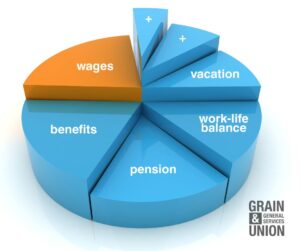
On October 17, the Joint Executive Council (JEC) met in Regina, SK, bringing together elected representatives from each Local to review union business and ensure members’ voices remain central in all decisions. Meeting twice each year, the Council plays a key role in guiding GSU’s direction and maintaining transparency across the organization.
During this meeting, Council members reviewed financial statements and approved the General Secretary’s report for distribution to members, including a motion to continue contributing additional dues to the GSU Defense Fund in 2026. This motion will be voted on by members attending the current GSU membership meetings taking place this autumn. They also reviewed the hiring committee’s recommendation and appointed Jordan Cousins to fill GSU’s staff representative vacancy.
Council members received updates on actions taken on resolutions from the 2025 GSU biennial convention, the impending implementation of GSU’s new Union365 customer relations management (CRM) system, changes to the scholarship policy to provide additional access for GSU members, and Local and organizing reports. Additional updates on union initiatives and other matters affecting members were also discussed.
Council meetings provide an important opportunity for council members to share insights from their Locals, coordinate on union priorities, and ensure the collective interests of GSU members continue to be represented effectively.







